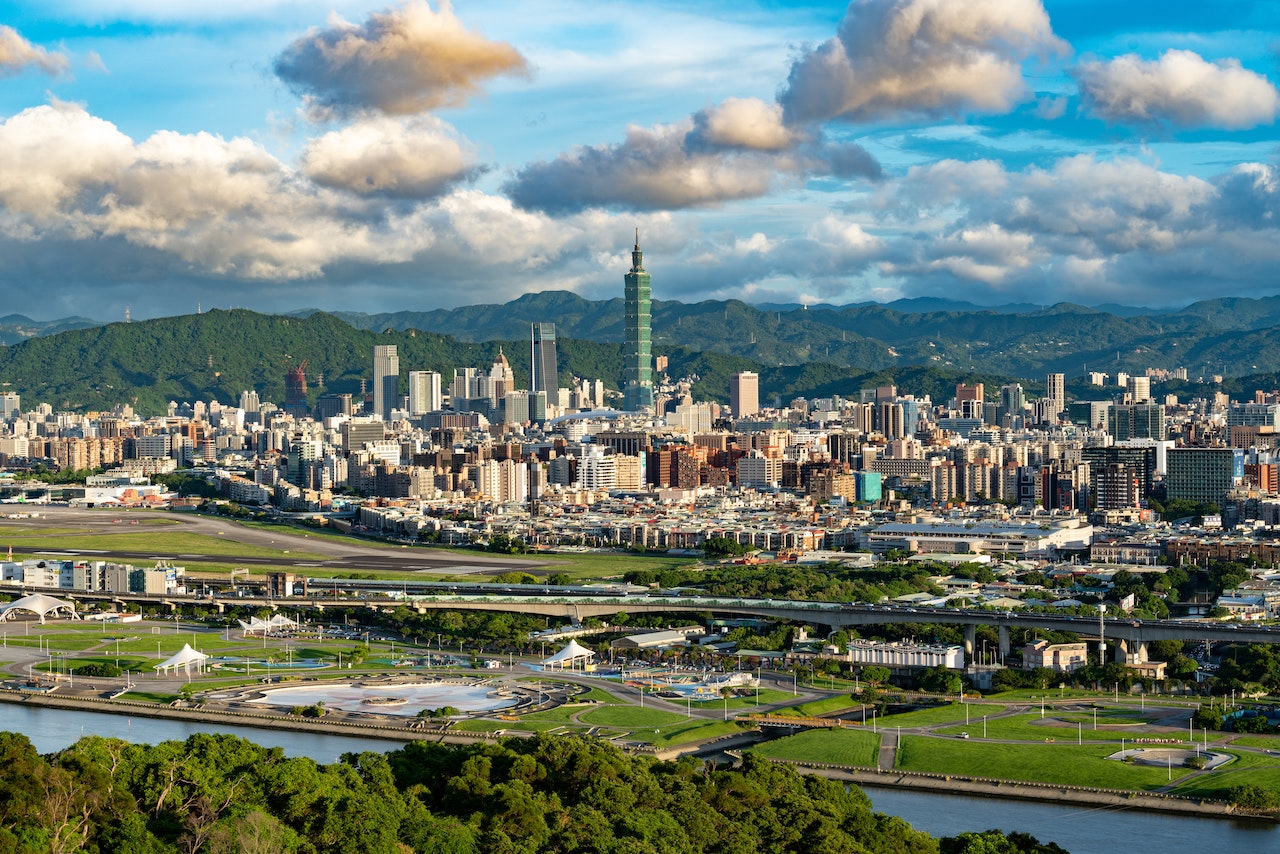WELLINGTON COUNTY – Wellington-Halton Hills MP Michael Chong will be boarding a plane destined for Taiwan this weekend, along with four MPs who chair or vice-chair foreign affairs or defence committees.
The group — including Stéphane Bergeron, James Bezan, John McKay and Heather McPherson — are visiting throughout next week at Taiwan’s invitation.
The Taiwanese government is covering the cost of travel and accommodations.
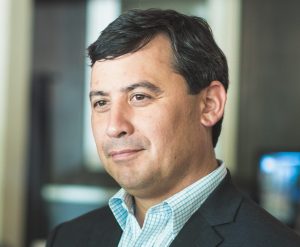
Wellington-Halton Hills MP Michael Chong
Chong will attend as the Conservative shadow minister for foreign affairs, and in his role as vice-chair of the Special Committee on the Canada–People’s Republic of China Relationship (CACN). It will be his first visit to the country.
According to sponsored travel lists published by Canada’s ethics commissioner, Canadian parliamentarians have made the long flight to Taiwan’s capital city of Taipei on that government’s dime many times in recent years before travel was halted by the pandemic.
Next week’s trip follows a delegation of five Canadian MPs made last fall on a “parliamentary friendship group visit” that drew open scorn from Beijing, which took the view that Canada was meddling in its affairs.
Under its “One China” policy, the People’s Republic of China (PRC) views Taiwan not as an independent state, but an “inalienable” part of China.
The Chinese Embassy in Ottawa did not respond to the Advertiser’s request for comment on the upcoming visit, nor did the Taipei Economic and Cultural Office (Taiwan’s embassy in Canada).
“This marks the resumption of parliamentary delegations from Canada going to Taiwan after the pandemic, and I think it’s even more important in the current context with the tensions we’re seeing in the region,” Chong told the Advertiser by phone on April 3.
Next week, the group will meet with high-level Taiwanese government officials to discuss relations between the two countries, and Taiwan’s interest in representing itself on the global stage in the World Health Organization (which China won’t allow) and the International Civil Aviation Organization, headquartered in Montreal.
Chong said he hopes to learn from Taiwanese officials how they handle meddling in their democratic process; something he says Canada’s federal government hasn’t done a great job of, considering probes initiated by Prime Minister Justin Trudeau into China’s alleged interference in Canadian elections.
Chong also praised Taiwan’s handling of the COVID-19 pandemic, during which the country had some of the world’s lowest case numbers.
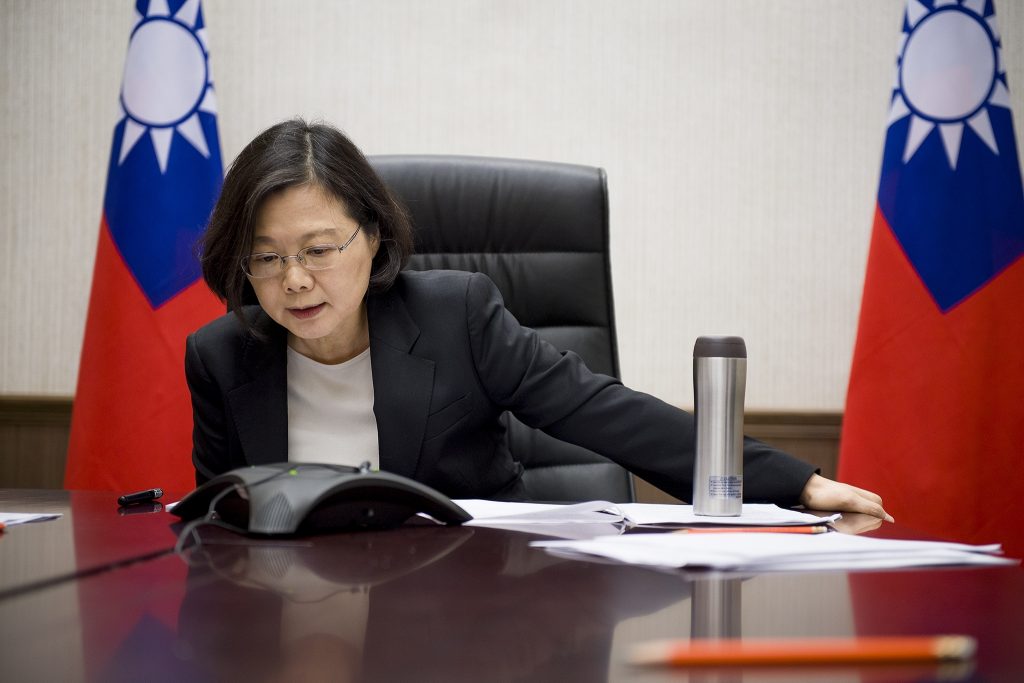
Republic of China (Taiwan) President Tsai Ing-wen. (Presidential Palace of the Republic of China)
What’s learned in Taiwan will be brought back to the floor of the House of Commons, Chong says.
Canada is also beginning work this year on a “Foreign Investment Promotion and Protection Arrangement” with Taiwan, Canada’s 13th largest trading partner, according to government data. In 2021, Canada and Taiwan traded $11.7 billion in goods and services.
Taiwan has also directly invested $284 million in Canada, according to the federal government, with Canada investing $355 million there.
“I think enhancing economic ties with Taiwan could really help facilitate the development of Canadian manufacturing,” Chong said, noting the majority of the world’s semiconductors come from Taiwan.
The country has also applied to join in the Trans-Pacific Partnership trade agreement, of which Canada is a signatory.
But progress is stalled thanks to political pressure exerted from China, which has also applied to become a member.
Taiwan becoming a signatory, Chong said, would “enhance two-way trade and investment.”
As Taiwan intensifies its defence training and extends mandatory military service to 12 months from four in response to Beijing’s intimidation and bellicose statements, delegations by lawmakers from countries such as the U.K. and U.S. have made visits to Taipei a priority.
The coming Canadian trip not only serves this country’s interests, Chong said, but also sends a message to Beijing.
“There’s a price to be paid if they ever do to Taiwan what Russia has done to Ukraine,” he remarked.
On March 31, Chinese Communist Party Foreign Ministry spokesperson Mao Ning said, “No matter what the Taiwan authorities say or do, it won’t change the fact that Taiwan is part of China. No one, and no force, can hold back China’s reunification.”
In 2021, President Xi Jinping spoke of “national rejuvenation” by 2049, the hundred-year anniversary of the communist takeover of China that ended the Chinese Civil War and established the PRC.
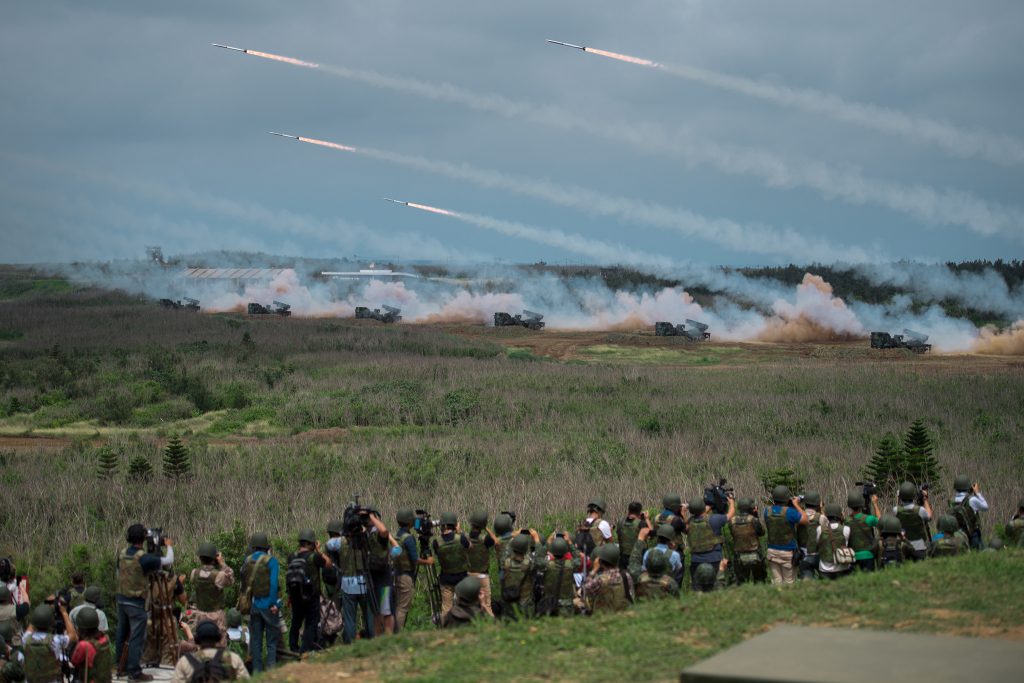
The Han Kuang Exercise is a military exercise of the Republic of China (Taiwan) Armed Forces demonstrating combat readiness in the event of attack from China. (Presidential Palace of the Republic of China)
Canada hasn’t recognized Taiwan as a sovereign state since 1971, when a United Nations (UN) resolution was passed recognizing the PRC as the sole legitimate representative of Chinese interests.
Taiwan, officially the Republic of China, was expelled from the UN.
Ever since, Canada and Taiwan have maintained informal relations, with Canada noting China’s claim to Taiwan, but not endorsing it.
Chong believes maintaining the status quo, in which Taiwan doesn’t declare independence and China claims its One China policy, serves Canada best.
“What we have to do is encourage Beijing to understand the benefit for [them] in maintaining that status quo, as opposed to using force to change it,” he said.
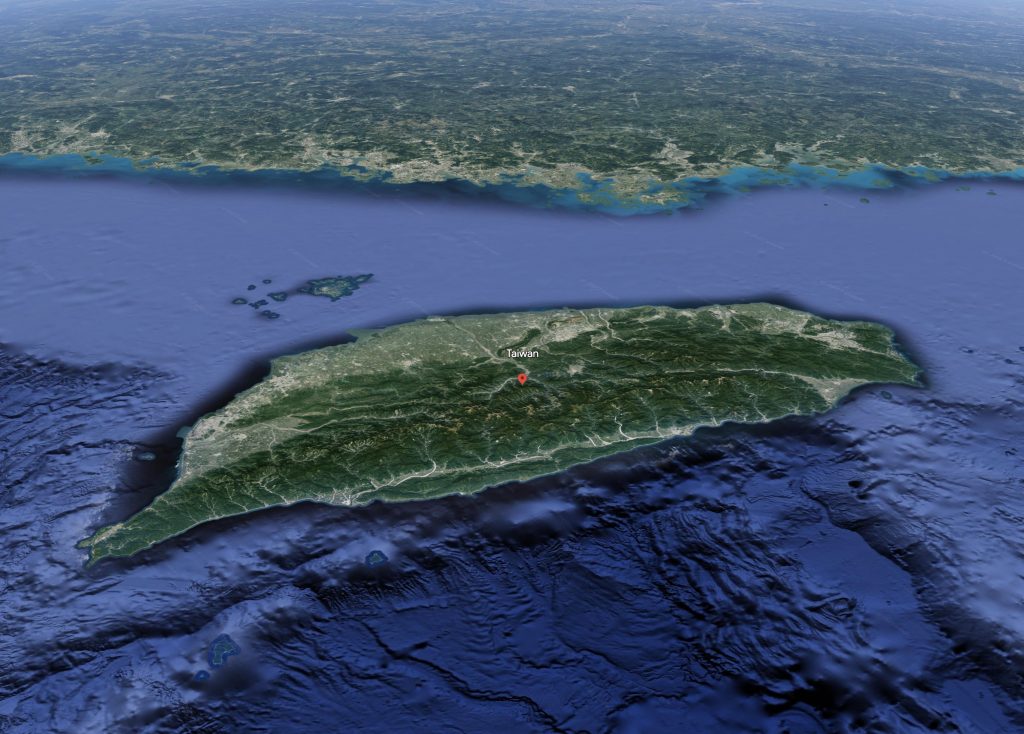
(Google Earth)
The CACN recently released a report last month entitled “Canada and Taiwan: A Strong Relationship in Turbulent Times,” with 18 recommendations stemming from a study on relations between the two countries.
The study and report includes testimony from Taiwanese officials, including Harry Ho-jen Tseng, a representative of the Taipei Cultural and Economic Office in Canada.
According to the committee report, Tseng said, “if Taiwan falls, democracy falls, and that will be the ultimate concern of all of us.”
The report calls on the Canadian government to maintain the status quo while “enhancing people-to-people ties, trade and investment, and security cooperation.”
“Such engagement with Taiwan is important in the face of increased aggression from the PRC,” the report states.
In response to the report, the Chinese Embassy in Ottawa released an April 1 statement which said, in part, that the report slanders China and grossly interferes in its internal affairs, constituting “a flagrant provocation to the Chinese people.”
The “Taiwan question,” the statement added, is for China to resolve.
“We call on the Canadian politicians to stop engaging in political manipulation of the Taiwan question, stop undermining China’s interests, stop creating new obstacles in bilateral relations, and not go further down the wrong path.”
The federal government has four months to consider the 18 CACN recommendations before returning a comprehensive response.




